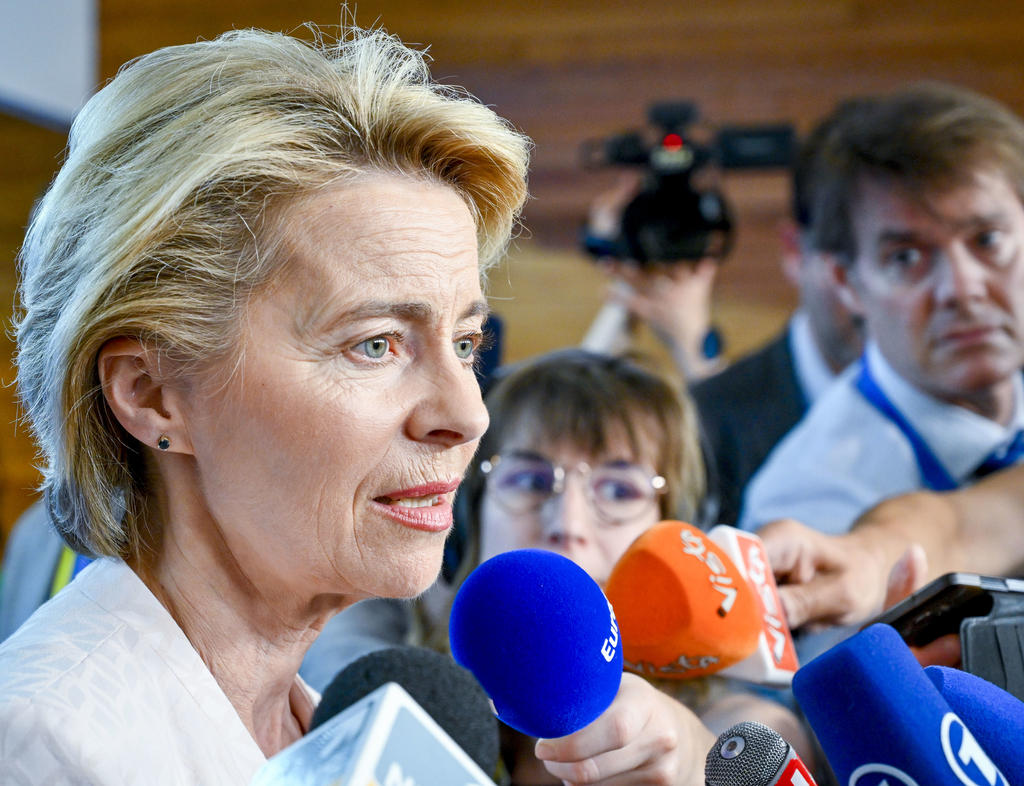Brussels witnessed an extraordinary political storm this week as European Commission President Ursula von der Leyen’s sweeping €2 trillion budget vision collided with institutional dissent, media confusion, and a growing rebellion among MEPs. In what was supposed to be a moment of technocratic clarity and strategic direction, a series of cancelled briefings, opaque figures, and deeply divisive funding plans instead raised new questions about leadership, transparency, and the future of the EU project.
The flashpoint for much of the discontent was not war, defence, or digital competitiveness — but tobacco.
A Day of Cancelled Briefings and Rising Dissent
What began as a routine budget presentation quickly descended into chaos. Technical briefings scheduled to explain the numbers behind the Commission’s budget overhaul were abruptly cancelled, replaced at the last minute by a political press conference. Reporters and MEPs alike were left scrambling to make sense of figures that seemed to shift with every version of the internal draft.
The confusion drew immediate fire from within Parliament. Centrist and left-wing MEPs expressed fury at what they described as a “top-down” approach from the Commission that ignored democratic processes. Several noted that key elements of the budget, including crisis funding, competitiveness support, and CAP reform, had been insufficiently consulted on and lacked clarity. “We’re looking at a document that mixes ambition with improvisation,” one senior MEP told EU Reporter.
Budget Math and Political Fallout
The budget proposal, pitched as a revolutionary pivot toward a more autonomous and resilient Europe, promised bold sums: €451 billion for competitiveness, €300 billion for agriculture, €218 billion for regional cohesion, €131 billion for defence and space, and a €400 billion crisis reserve. But analysts and member state officials were quick to point out that some of these numbers are based on “optimistic inflation assumptions” rather than guaranteed allocations.
The backlash was swift. In Parliament, opposition to von der Leyen’s leadership continues to simmer just beneath the surface. Earlier this month, she narrowly survived a censure motion, and although the vote ultimately failed, it revealed the fragility of the centrist alliance that has underpinned her presidency. Socialist and Green groups, in particular, expressed discomfort at the perceived rightward drift of the Commission and warned that budget decisions were now being weaponised for electoral positioning ahead of 2026.
The Tobacco Tax Flashpoint
But perhaps no part of the budget stirred more outrage than the Commission’s decision to make tobacco taxation a central pillar of its fiscal strategy.
In a bold and controversial move, the Commission proposed to raise approximately €15 billion annually through revised excise duties on tobacco and alternative nicotine products, including vaping devices and oral nicotine pouches. These revenues would form part of the EU’s so-called “own resources” — directly funding the budget and helping to repay joint EU borrowing from the post-COVID recovery fund.
This approach has sparked alarm across multiple fronts.
Public health advocates argue that tying fiscal stability to tobacco consumption is ethically fraught. “It creates a perverse incentive,” warned one NGO spokesperson. “If the EU depends on tobacco for income, what happens to public health targets?”
Member states, meanwhile, are divided. Sweden, Italy, Greece and Romania have pushed back strongly, warning that such a policy could weaken national tax bases and fuel illicit trade. Swedish officials reportedly described the proposal as “unacceptable,” particularly given its overlap with ongoing reforms under the Tobacco Excise Duty Directive (TED).
Adding to the tension, the Commission has linked this excise overhaul with broader public health objectives, suggesting that the revision of TED will also address packaging, labelling, marketing, and cross-border sales — further blurring the lines between revenue policy and regulation.
Von der Leyen’s High-Stakes Gamble
For von der Leyen, this budget is about legacy. Her proposal reflects an ambitious attempt to secure Europe’s long-term strategic autonomy in a world marked by geopolitical fragmentation and post-pandemic volatility. Yet her methods — rapid rollout, centralised framing, and a willingness to override traditional consultation mechanisms — have created friction on nearly every front.
Within the Commission itself, officials reportedly worked “almost non-stop” to finalise the draft, with multiple versions circulating in the final 48 hours. The absence of a unified communication strategy only deepened confusion among media and national representatives.
At the political level, the proposal has triggered new bargaining dynamics. Socialists demanded greater social spending in return for continued support. Agricultural lobbies are now demanding the preservation of CAP funding. Member states are calculating the trade-offs between greater EU autonomy and their own fiscal sovereignty.
Meanwhile, tobacco taxation has transformed from a niche policy tool into a core test of von der Leyen’s vision. What was once a health issue now carries implications for economic recovery, EU integration, and political legitimacy.
A Budget to Unite or Divide?
In attempting to reshape the EU’s financial architecture around new own resources, greater strategic autonomy, and a vision of post-crisis transformation, Ursula von der Leyen has triggered the most intense political infighting seen in Brussels in years.
Whether this bold blueprint becomes a moment of European renewal or a cautionary tale of political overreach remains to be seen. What is clear is that the tobacco debate — with its mix of ethics, economics, and sovereignty — has become a microcosm of the broader EU struggle to balance unity, ambition, and accountability.
And for now, that struggle is far from over.










